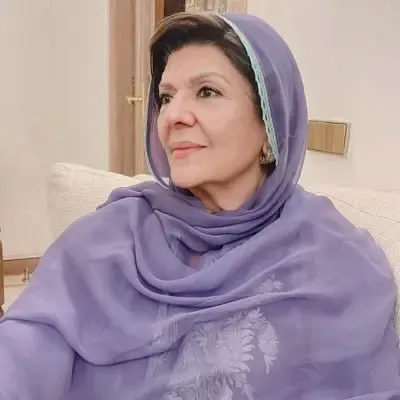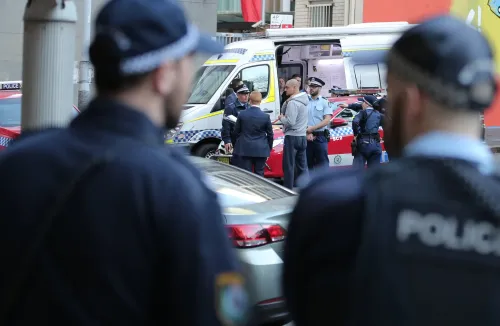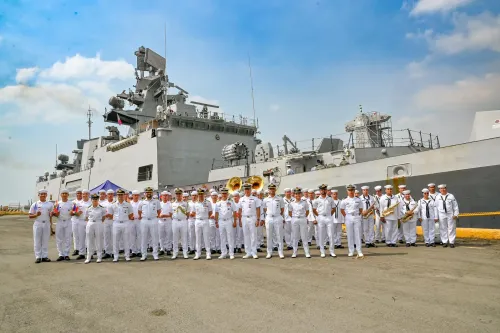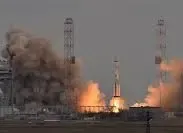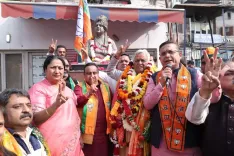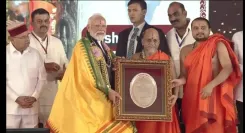Is India a ‘Pillar’ in the Indo-Pacific and Global Economy?
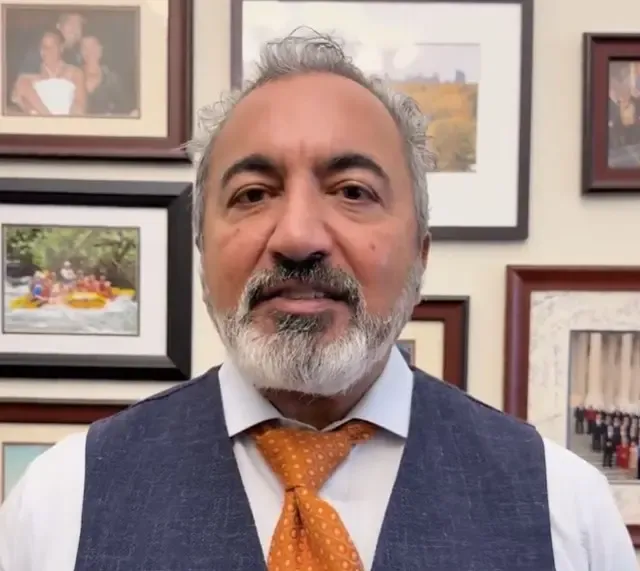
Synopsis
Key Takeaways
- Congressman Bera emphasizes bipartisan support for India-US ties.
- India is a central player in global economics and Indo-Pacific strategy.
- Recent H-1B visa changes could harm US industries.
- Dialogue with Indian leadership is essential for future cooperation.
- Appointment of Sergio Gor could strengthen US-India relations.
Washington, Oct 11 (NationPress) Congressman Ami Bera, a Democratic representative from California, has stressed the necessity for the US Congress to unite in support of the significant India-US relationship, describing India as a cornerstone of both the Indo-Pacific strategy and the global economy.
In an exclusive conversation with IANS on Friday, Bera, who holds the position of Ranking Member of the Subcommittee on East Asia and the Pacific, shared that he and other lawmakers will soon propose legislation to reaffirm the bilateral relationship, indicating that the US Congress is firmly in favor of these ties.
“I believe it is essential for Congress, both Democrats and Republicans, to come together and express our viewpoint on the India-US relationship. We will be introducing legislation and a sense of Congress to emphasize that this relationship is crucial in the 21st century,” he stated.
Nineteen Democratic House members co-signed a letter to US President Donald Trump on Wednesday, urging him to “reset and repair” the vital India-US partnership.
The lawmakers requested Trump to “review” his tariff strategy and maintain a dialogue with Indian leadership, stressing that the way forward necessitates “recalibration, not confrontation.” Notably, no Republican members endorsed the letter.
Bera speculated that Republicans are “certainly hesitant to confront President Trump directly”, but suggested a bipartisan approach to demonstrate support for India-US relations.
“Instead of framing this as a conflict with President Trump, let’s focus on the US-India relationship. It's vital that this is viewed as an American priority, not just a Democratic or Republican issue,” he emphasized.
After leading a recent Congressional delegation to India, Bera mentioned that there were “some concerns” among Indian officials, particularly regarding Pakistan, but he firmly stated that the future lies with New Delhi.
“We had the opportunity to visit the Western Naval Command. Relations are thriving. The business-to-business sector is flourishing. I reiterated that American companies are unlikely to make billion-dollar investments in Pakistan anytime soon; those investments are being made in India. Our military will not conduct joint operations with Pakistan or any naval exercises; all of that is happening with India,” he noted.
He reaffirmed India as a “cornerstone” of both the Indo-Pacific strategy and global economics.
“India is recognized as the fastest-growing economy in the world. We aspire to enhance business with India, aiming for zero tariffs and a comprehensive trade agreement,” he remarked.
The Congressman also praised Prime Minister Narendra Modi and External Affairs Minister S. Jaishankar for skillfully managing a challenging period with the Trump administration, noting that the US president shares a “strong relationship” with PM Modi.
“He certainly seemed to have a solid rapport with Prime Minister Modi. The Indian government has handled itself commendably, moderating its comments effectively. I believe [EAM] Jaishankar, being a seasoned diplomat, understands both the United States and China well. India has effectively recognized that the long-term relationship with the United States should be positive,” he remarked.
However, he criticized the Trump administration for lacking a “coherent” India strategy and pointed out the recent closeness of the US to Pakistan despite the terror attack in Pahalgam.
“It’s unclear what the overall strategy towards India is, as it appears disjointed at the moment. Initially, the relationship between Prime Minister Modi and President Trump seemed promising, but recently we have seen a shift towards Pakistan, particularly following the heinous terror attacks in April,” Bera noted.
He also expressed concerns regarding India's representation in the Trump White House, especially given the chaotic implementation of the H-1B visa proclamation and the ensuing confusion.
“During Trump's first term, he surrounded himself with experienced political figures in his cabinet. Unfortunately, individuals like Peter Navarro, who is close to the president, has not been supportive of India. Similarly, Stephen Miller’s influence on immigration policy, including the H-1B strategy, raises concerns about their decision-making process. The rollout of such significant policy changes was poorly managed, with no consultation with Congress and confusion within the industry,” he stated.
On September 19, Trump signed a proclamation that significantly restricts the H-1B visa program and imposes a hefty $100,000 application fee.
Discussing the H-1B crackdown, Bera labeled it as a “misguided decision” by President Trump that will “harm US industries.”
“This policy appears to be the result of a small group of individuals in the White House making decisions without adequate thought. The President made a poor choice that will adversely affect US industries. We are already seeing hospitals struggling to find doctors, many of whom are on H-1B visas,” he highlighted.
Nonetheless, Bera expressed optimism that the appointment of Sergio Gor as the next US ambassador to India would improve relations, as Gor “seems to have the President’s ear and the ability to communicate directly with him.”
“He has articulated a strong commitment to the US-India relationship during his confirmation hearings. His upcoming visit to Delhi will allow him to engage with Indian officials and witness the vibrancy of their economy and democracy, which he can convey to President Trump,” he added.
Gor arrived in India on Friday for a four-day visit, and according to a US State Department statement, he will “meet with Indian government counterparts to discuss a wide range of bilateral issues.”
Bera expressed confidence that recent tensions are merely a “blip” and that a few missteps by the current administration will not change the trajectory of the relationship.
“Just because of a few errors by President Trump in recent months, we should not disregard the progress we have made over the last three decades. I hope we can guide President Trump back to recognizing the importance of this relationship,” he concluded.

